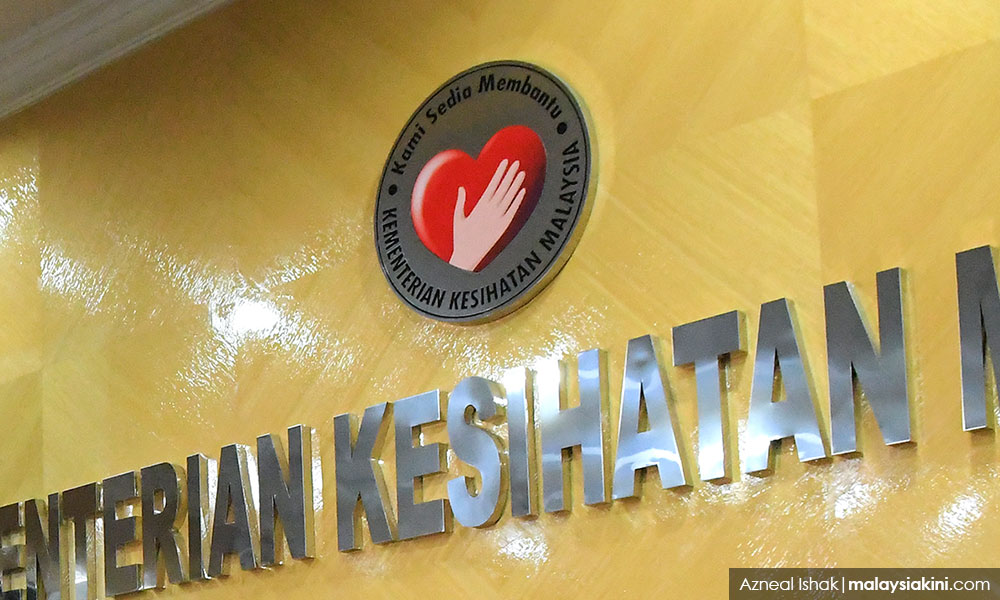LETTER | There has been a recent focus on the parallel pathway in the training of specialists in various medical specialities.
The misinformation and disinformation in some media statements have contributed to confusion, uneasiness, anxiety and even consternation.
This article seeks to address some of the issues raised.
National Specialist Register
There are about 17,000 doctors in the Malaysian Medical Council’s (MMC) National Specialist Register (NSR), with just under 8,000 (47 percent) having Master’s qualifications from the local universities.
The vast majority of the other 9,000 (53 percent) doctors in the NSR are Members or Fellows of the Royal Colleges of the United Kingdom, Ireland and Australia with smaller numbers with United States Specialty Boards and other speciality qualifications.
Specialist registration in the United Kingdom
The General Medical Council (GMC) of the United Kingdom established its Specialist Register in 1997. The GMC approved 65 structured specialty and 31 sub-specialty training programmes in the National Health Service (NHS) and university hospitals.
In order to complete speciality training, the duration of which ranges from five to seven years, depending on speciality, one has to pass annual reviews and examinations of the Royal Colleges. Upon successful completion, the Certificate of Completion of Training (CCT) is awarded by the GMC.
The royal colleges are professional bodies which have been setting standards, supervising training and conducting examinations for various specialities. The royal colleges have rules and regulations for their examinations, and curricula approved by the GMC.
There are several pathways for GMC specialist registration such as CCT, combined programme, portfolio pathway – specialist registration, portfolio pathway in a non-CCT speciality, portfolio pathway through academic or research medicine, relevant European qualification – specialist, reassessments under the general system for the recognition of training – specialist and qualifying Swiss applicants – specialist.
Specialist registration in Singapore
Speciality training in Singapore has been done in collaboration with the United States (US)Accreditation Council of Graduate Medical Education International (ACGME-I) with the establishment of residency programmes since 2010.
These structured programmes are of three to six years duration, depending on speciality, at the end of which there are assessments before certification of competency by the Joint Committee on Specialist Training (JCST).
There are several pathways for registration with the Specialists Accreditation Board (SAB) of the Singapore Medical Council depending on the various categories of doctors - i.e. those specialists trained in Singapore and have received JCST certification; those trained in UK, US, Australia, New Zealand, Canada and Hong Kong and certified to have done and completed specialist training in these countries.

This also includes those trained and specialist-certified in approved centres in European Countries (listed in the European Directive 93/16/EEC); and others with qualifications recognised by the SAB and who have undergone specialist training.
MMC specialist registration – two pathways, now one
Work-based speciality training is provided in the Health Ministry facilities for all junior doctors. About 80 to 90 percent of the trainees in the local universities’ Master’s programmes, which are four-year structured programmes, are trained in the ministry’s facilities.
Their training is no different from that of other doctors, some of whom are in the parallel pathway established in 2014 to prepare them to take the royal colleges’ examinations.
Until July 2022, there were two pathways for applications to the NSR:
(a)Specialists with qualifications in the NSR list
(b)Those whose qualifications were not on the MMC list were considered on an individual basis.
The MMC updated its NSR Registration Procedures and Guidelines, on Nov 21, 2023, in which the pathway for doctors whose qualifications were not in the MMC’s NSR list was removed.
It appears that the MMC has failed in its duty to inform the profession of changes to its guidelines. Any change(s) have to be prospective and not retrospective. Furthermore, it is unfair for doctors to be penalised for any changes, not of their making.
Recognised qualification
A recognised qualification is one that is accepted by a medical regulator as evidence of a doctor’s knowledge, skills and experience to apply for registration to practise.
The MMC has two such lists - primary and specialist medical qualifications. The former is gazetted and the latter is on the MMC’s website.
Media reports have reflected a misperception of what a recognised qualification is.
The writer’s experience is illustrative of a recognised qualification. The writer applied for and was granted full registration by the GMC which then recognised the MBBS (Malaya).
Subsequent to the GMC’s derecognition of Universiti Malaya, in the early 1980s, all doctors with MBBS (Malaya) have to pass the Professional and Linguistics Assessment Board (PLAB) examination before they can apply for full registration with the GMC.
An applicant with the FRCS Edinburgh in Cardiothoracic Surgery was recently informed by the Specialist Applications Advisor of the Registration and Revalidation Directorate of the GMC that he can apply for GMC specialist registration through the Portfolio Pathway.
This means that this qualification is recognised, contrary to claims by certain quarters.
MMC is the authority in recognition, accreditation
The Medical Act 1971 (amended 2012), which came into effect on July 1, 2017, is the only Act that provides for the establishment of the NSR which is not found in any other Act.
This means that the MMC is the sole authority in the recognition of qualifications for the NSR.
The MMC is not subservient to the Medical Qualifying Agency (MQA). This is clearly stated in the MQA Act, Section 3 of which states:
(1) The provisions of this Act shall be in addition to, and not in derogation of, the provisions of any other written law relating to accreditation of programmes or qualifications.
(2) Except for professional programmes or professional qualifications, in the event of any conflict or inconsistency between the provisions of this Act and those of any other written law pertaining to accreditation of programmes or qualifications, the provisions of this Act shall prevail and the conflicting or inconsistent provisions of such other written law shall, to the extent of the conflict or inconsistency, be deemed to be superseded.
Chapter 2 (Sections 50-55) of the MQA Act provides that the MMC is the decision maker in approving or refusing accreditation, imposing conditions and revocation of accreditation.
That MMC is the authority in accreditation was reiterated in Asia Pacific Higher Learning Sdn Bhd vs MMC Anor [2019].
Branch campuses of foreign institutions physically present in Malaysia such as Monash University and Newcastle University have been accredited by MMC.
Both institutions have also been accredited by the Australian Medical Council and the GMC, respectively.
MQA accreditation does not mean automatic MMC recognition – for example - UCSI’s Master of Science (Healthy ageing, Medical aesthetics & Regenerative Medicine) programme accredited by MAQ is not recognised for MMC’s NSR.
The qualifications in the parallel pathway are still found in the MMC’s NSR list. This means they are recognised.
The MQA has acknowledged that the authority on the parallel pathway issue lies with MMC and not MQA.
Recognised training institution
The above term in section 14B of the Medical Act has been used in arguments against the recognition of the parallel pathway. The contention is that the Health Ministry’s facilities are healthcare providers and not recognised training institutions.

This argument ignores the fact that the ministry provides work-based training for all junior doctors including 80 to 90 percent of Masters trainees. There have been no reports of double standards in training for Master’s trainees, those on the parallel pathway, and those on no pathway.
If the ministry’s facilities are not recognised training institutions, does this mean that the qualifications of the Master’s trainees in such facilities should not be recognised also?
Food for thought
Patients, colleagues and friends have asked the writer why the issue of the parallel pathway surfaced 10 years after it started (in 2014) and seven years after the NSR was established (in 2017).
What interests drove the opposition to the parallel pathway? Were they personal, institutional, professional or racial? That it is not professional is reflected in the tremendous support for the parallel pathway by professional organisations.
Malaysia is short of specialists, more so in some disciplines, like cardiothoracic surgery. The Master's programmes, which have been around since the 1980s, have not produced sufficient specialists for the country’s needs and are unlikely to do so in the foreseeable future.
Writer was an elected member of the MMC from August 1995 to July 2022. He was also the past president of the Federation of Private Medical Associations, Malaysia and the Malaysian Medical Association.
The views expressed here are those of the author/contributor and do not necessarily represent the views of Malaysiakini.

